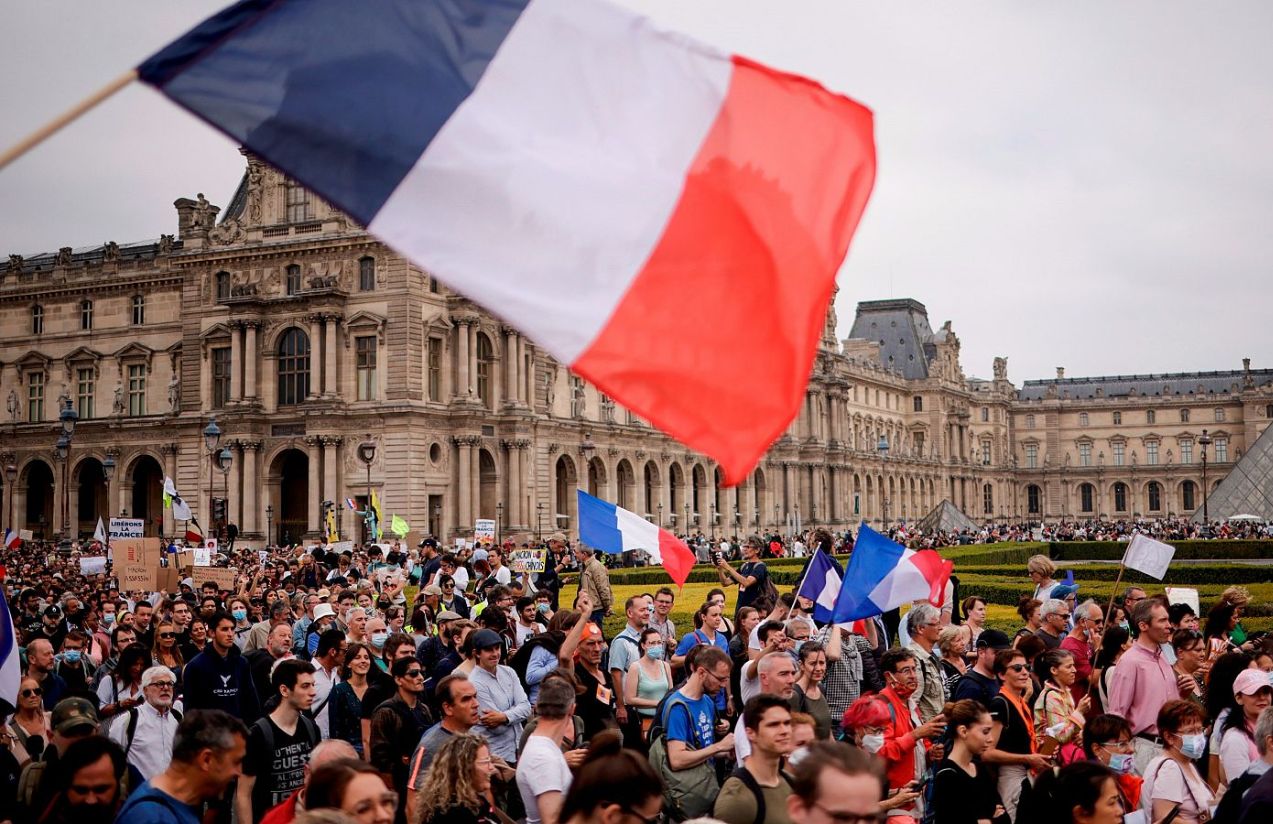French President Emmanuel Macron announced Thursday that France will officially recognize the State of Palestine, a significant diplomatic shift that increases pressure on Israel amid growing global outrage over the worsening hunger crisis in the Gaza Strip caused by the Israeli siege.
In a post on social media platform X, Macron stated that the decision will be formalized at the upcoming United Nations General Assembly in September. “What is urgent today is to end the war in Gaza and save the civilian population,” he wrote.
With this move, France becomes the most influential Western power to recognize Palestine, potentially paving the way for other nations to follow suit. So far, more than 140 countries have recognized a Palestinian state, including several European nations.
Israel responded harshly to the announcement. Prime Minister Benjamin Netanyahu condemned the decision, saying, “We strongly oppose President Macron’s move. Such an act rewards terrorism.”
Meanwhile, the Palestinian Authority welcomed the announcement. An official letter confirming France’s recognition was presented to Palestinian President Mahmoud Abbas in Jerusalem. Hussein Al Sheikh, deputy head of the PLO, expressed his gratitude on social media: “This position reflects France’s commitment to international law and to the Palestinian people’s right to self-determination.”
Macron, who had expressed support for Israel after the October 7, 2023 Hamas attack and has frequently spoken out against antisemitism, has become increasingly disillusioned with Israel’s military campaign in Gaza. “Given France’s historic commitment to a just and lasting peace in the Middle East, I have decided that France will recognize the State of Palestine,” he wrote. “Peace is possible.”
The announcement comes shortly after the United States halted ceasefire talks, citing Hamas’s alleged lack of good faith. It also precedes a conference co-hosted by France and Saudi Arabia at the UN to promote a two-state solution.
France, home to both the largest Jewish community in Europe and the largest Muslim population in Western Europe, has often seen Middle Eastern tensions spill over into domestic unrest and protests.
France’s decision aligns with mounting international criticism of Israeli restrictions on aid entering Gaza and the killing of hundreds of Palestinians trying to obtain food. Earlier this week, more than two dozen countries—mostly in Europe—joined in condemning Israel’s actions.
Macron is expected to hold talks on Friday with the leaders of the United Kingdom and Germany to discuss the situation in Gaza, efforts to deliver humanitarian aid, and strategies to end the fighting.
British Prime Minister Keir Starmer, who will take part in the talks, voiced his support for a two-state solution: “Statehood is the inalienable right of the Palestinian people. A ceasefire will set us on a path toward recognition of a Palestinian state and a two-state solution that ensures peace and security for both Palestinians and Israelis. The suffering and starvation unfolding in Gaza are indefensible and beyond words.”
The last serious peace negotiations between Israelis and Palestinians broke down in 2009, when Netanyahu returned to power. Today, much of the international community sees the creation of a viable Palestinian state as the only realistic path to resolving the decades-long conflict.

